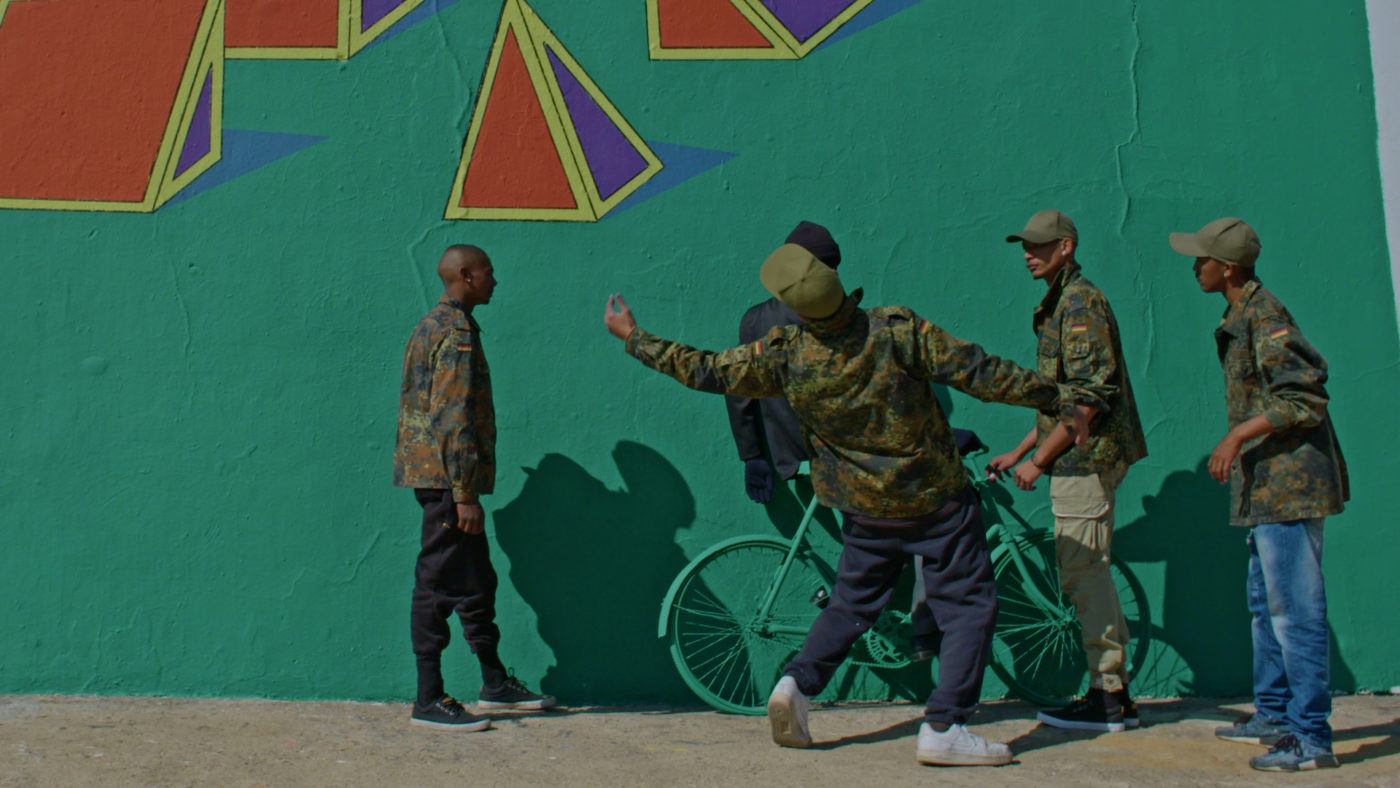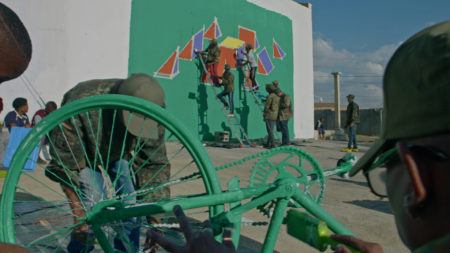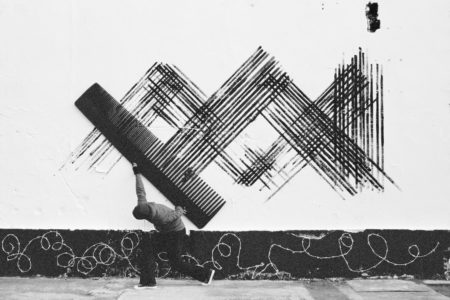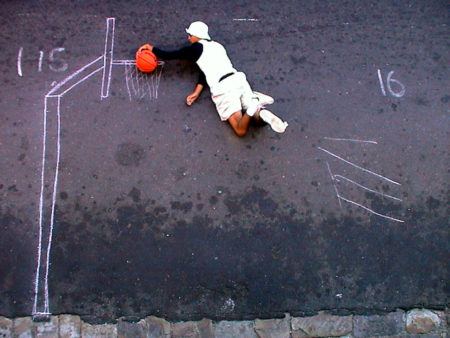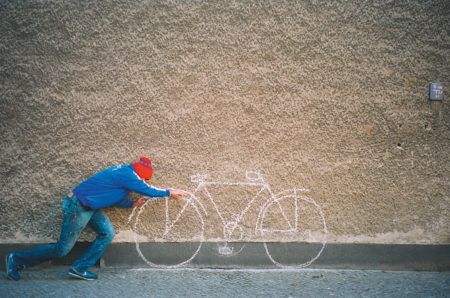Robin Rhode
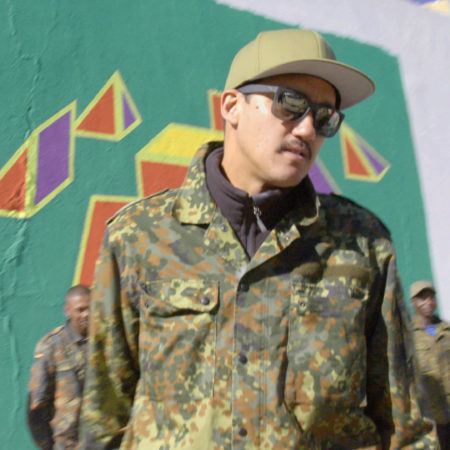
Robin Rhode was born in Cape Town, South Africa, in 1976. Inspired by youth street culture and art history, Rhode creates drawings, paintings, photography, and films. In Rhode’s work, urban walls become his canvases, static images are put into motion, and the artist becomes a performer and street interventionist.
Rhode uses charcoal, chalk, and paint to create imaginary worlds on the sides of abandoned buildings and walls, replete with drawn images of bicycles, cars, television sets, and abstract geometric shapes. The artist (or an actor standing in for the artist) performs in front of the drawings; photographs capture the interaction between the two-dimensional imagery and three-dimensional performer. Working with a group of young mixed-race and “born free” South African collaborators to create these vibrant and temporary murals, Rhode, who came of age in the final years of South African apartheid, questions ideas of identity, social hierarchy, and access to art history. His work melds a street-based aesthetic drawn from hip-hop, film, and sports with a range of historical and contemporary socio-political references.
Robin Rhode graduated from the South African School of Film, Television, and Dramatic Art (2000) and the Technikon Witwatersrand (1998). His awards and residencies include the Zurich Art Prize (2018); A.T. Kearney Young Artist Award (2011); Illy Prize, at Art Brussels (2007); Walker Art Center residency (2003); Karl Hofer Gesellschaft residency (2001); and South African National Gallery residency (2000). He has had major exhibitions at Tel Aviv Museum of Art (2017); Performa (2015); National Gallery of Victoria, Melbourne, Australia (2013); Sydney Biennale (2012); Los Angeles County Museum of Art (2010); Hayward Gallery, London (2008); Haus der Kunst, Munich (2007); Museum of Modern Art (2011, 2005); and Venice Biennale (2005). Robin Rhodes lives and works in Berlin and Johannesburg.
Videos 2
Read
Galleries
“When you give young people a sense of worth, you can really change their own identity and sense of self.”
Robin Rhode
